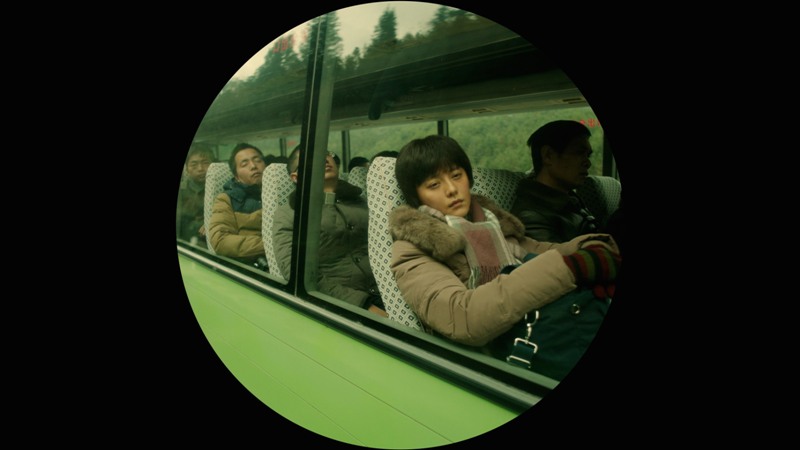A Good Week For Experimental Cinema With 'I Am Not Madame Bovary' and 'Billy Lynn's Long Halftime Walk'
Among all the paint-by-numbers popcorn movies in Chinese cinemas this month, there are a couple of stand-out arthouse films by ethnically Chinese directors which are pushing the creative envelope in interesting ways.
First up, is Billy Lynn's Long Halftime Walk (比利·林恩的中场战事) by Ang Lee, the Taiwanese-born American director. The ambitious pic, based on the bestselling novel by Ben Fountain, tells the story of a 19-year-old private Billy Lynn, who returns to the US in 2004 for a brief victory tour with his fellow soldiers. The celebrations, which culminate in a spectacular halftime show at a Thanksgiving Day football game, are interspersed with flashbacks to the reality of the war in Iraq.

What makes it stand out is the fact it's the first full-length narrative film shot in 4K, native 3D at a ultra-high rate of 120 frames-per-second – much higher than what audiences are accustomed to.
The effect of the sped-up frame-rate is a kind of “hyperreal” experience which gives the film’s characters and the background scenery so much detail it almost starts to seem artificial. Audience reactions have been mixed with some considering it so jarring that it detracts from the story.
But you should make up your own mind. Bona Cinema in U-Town Mall upgraded its equipment in its Polybana Cinema in order to show the hyperreal version the way Lee intended. I’d advise physically going to the cinema to see if you can snag tickets to the 120k version. Otherwise, it's still extremely striking in IMAX 3D.
Meanwhile, veteran Chinese director Feng Xiaogang’s new movie I Am Not Madame Bovary (我不是潘金莲) starring Fan Bingbing came out over the weekend. Like Billy Lynn, Bovary is also based on based on a novel – this time by by award-winning author Liu Zhenyun (刘震云).

The highly anticipated film has made headlines for its mysterious delay in reaching Chinese cinemas, as well as a public stoush between director Feng and Wanda CEO Wang Jianlin which played out over social media over the weekend. The fight started on Friday, when Feng cried foul that Wanda Cinema were in effect boycotting the film by giving it a small amount of screening time.
The war-of-words continues to play out on Weibo with Wang Sicong, the son of China's richest man and owner of Wanda as well as the CEO of Huayi Brothers weighing in after Feng's initial torpedo.
Even with the Wanda handicap, Bovary still managed to debut in first place over the weekend pulling in an estimated RMB 205 million (USD 29.8 million).
RELATED: Eddie Redmayne and 'Fantastic Beasts' Costars Charm Beijing Fans at Red Carpet Event
The highly anticipated social satire sees A-list star Fan Bingbing playing a café owner caught in the bureaucratic maze of the Chinese legal system after she is swindled by her ex-husband.
The film marks an artistic departure from Feng’s normally more commercial fare, with its use of a perfect circular frame for about 80 percent of the film, as well as its casting of the glamorous Fan as the film’s unflattering-looking peasant lead.
Gimmicks aside, both films tell worthwhile stories and offer subtle critiques of the two societies they depict – one of a super power on the wane and another on the rise.
Images: rtve.es, imedia.ro, cooljem.com
Comments
New comments are displayed first.Comments
![]() PatrickLi
Submitted by Guest on Mon, 11/21/2016 - 15:16 Permalink
PatrickLi
Submitted by Guest on Mon, 11/21/2016 - 15:16 Permalink
Re: A Good Week For Experimental Cinema With 'I Am Not Madame...
Even if the title of the movie, I Am Not Madame Bovary, doesn't really translate, my hats off for Feng Xiaogang. I just watched it on big screen in Atlanta. It is the probably the best, and definitely the most satirical Chinese movie I've ever seen. It shows everything I know about China's governing system. The ways that the officials eat, talk, perform and persuade are exactly the same as I observed. The best part of it is probably that in the beginning, the people's court actually rendered a correct judgment on the divorce case, and therefore the protagonist (the plaintiff who lost the divorce case) was the original villain in the movie. However, the core of the movie is not the divorce case, but how the government reacted toward the plaintiff who in fact didn't even have a case. I tend to think the author purposefully created a rather obstinate, stubborn protagonist who doesn't have a legitimate reason in her case, and government officials who were rather okay people. By doing so, the author revealed the absurdity arising from the complete authoritarianism of China's current layers of government, where both the officials and the plaintiff thought they were wronged.
Validate your mobile phone number to post comments.

